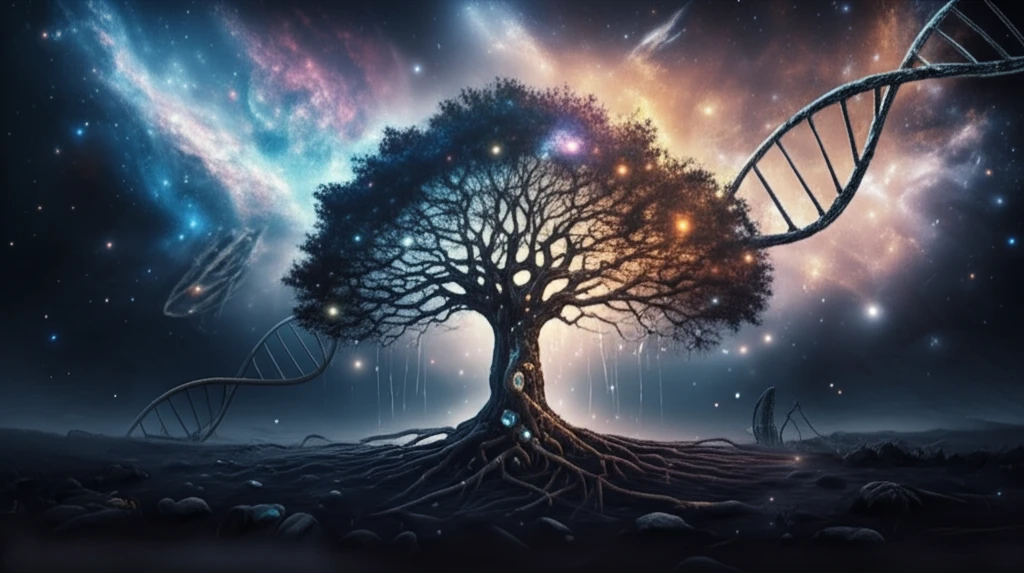
Faith Meets Evolution: Can Theistic Evolution Bridge Science and Spirituality?
"Explore how design discourse offers a pathway for theistic evolution, reconciling evolutionary science with the belief in a Creator."
The relationship between science and religion has long been a topic of both fascination and contention. At the heart of this discussion lies the question of how to reconcile the scientific understanding of evolution with deeply held religious beliefs about creation and divine purpose. For many, the concept of theistic evolution—the idea that God used evolution as a mechanism for creation—offers a compelling middle ground.
However, this synthesis is not without its challenges. Critics argue that evolutionary theory makes the idea of a divine creator unnecessary, while others question how to reconcile the apparent randomness and imperfections of the natural world with the idea of a benevolent and all-powerful God. Design discourse, a philosophical approach championed by Alvin Plantinga, seeks to address these challenges by exploring how belief in a creator can be rationally maintained in light of evolutionary science.
This article delves into the core tenets of design discourse and its potential to bridge the gap between evolutionary science and theistic belief. By examining the arguments for and against design discourse, we aim to provide a comprehensive overview of this important topic and its implications for understanding the relationship between science and spirituality.
Understanding Plantinga's Design Discourse

Design discourse, as articulated by philosopher Alvin Plantinga, posits that the perception of design in biological organisms can provide rational grounds for belief in God, even in light of evolutionary theory. Plantinga challenges the notion that evolutionary explanations necessarily negate the possibility of divine design, arguing instead that our intuitive sense of purpose and order in the natural world can be a valid basis for religious faith.
- The affirmation that belief in design can be rational even without empirical proof.
- The emphasis on intuitive perception as a source of religious belief.
- The compatibility of design discourse with evolutionary science.
- The potential for design discourse to strengthen religious faith.
Reconciling Faith and Science
Design discourse offers a compelling framework for reconciling evolutionary science with theistic belief. By emphasizing the importance of intuitive perception and the compatibility of design with evolutionary processes, Plantinga provides a basis for maintaining faith in a creator without rejecting the findings of modern science. While design discourse may not resolve all the challenges of integrating faith and science, it offers a valuable starting point for continued dialogue and exploration.
